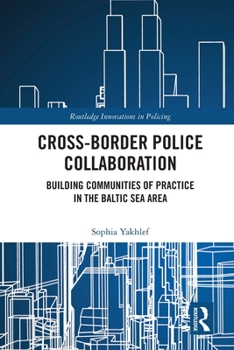Cross-Border Police Collaboration: Building Communities of Practice in the Baltic Sea Area
Select Format
Select Condition 
Book Overview
This book focuses on a border police collaboration project in the Baltic Sea area aiming at fighting cross-border crimes. It deals with the challenges that inherently "suspicious" organizations face when forced to work together. The study offers unique insights into a European border police project, giving the reader a behind the scenes account of how cross-border policing and organized crime in Europe is prevented and solved.
Through detailed ethnographic descriptions, the book describes how a trust-based relationship, which is necessary for the exchange of sensitive intelligence information, gradually developed by the participants in and through their joint efforts to protect Europe from external threats and by performing everyday work together.
The study presented in this book is of interest to scholars as well as practitioners concerned with migration management, border policing, intelligence analysis, police culture, and the changing nature of policing in an increasingly global and interconnected world. The book includes various sociological features, such as emotion management, emotional labor, hegemonic masculinity, and takes an interactionist perspective on informal interactions such as joking, bantering, and telling stories. It is also of interest to readers engaged in various forms of intra-, inter-organizational, and inter-cultural collaborations.
Related Subjects
Teen & Young Adult




